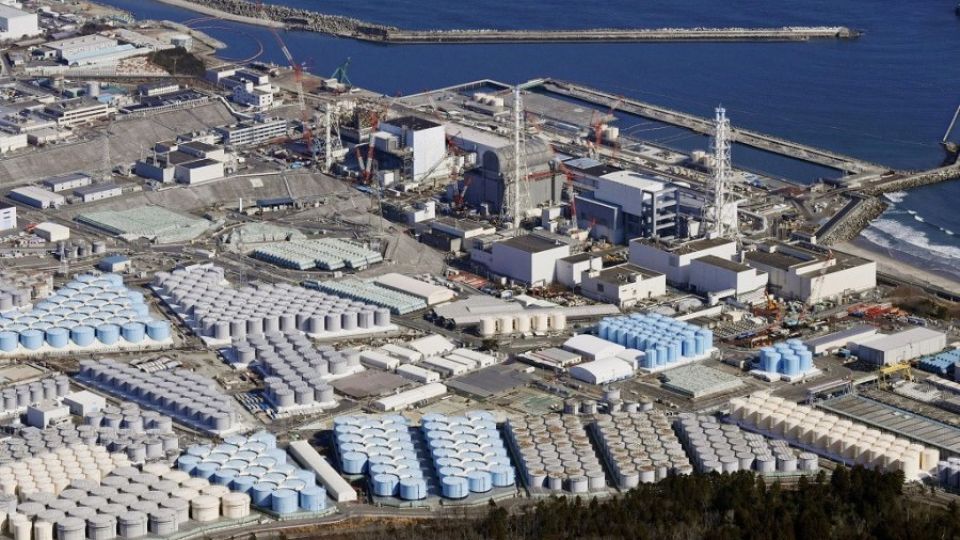August 28, 2023
JAKARTA – The Nuclear Energy Regulatory Agency (Bapeten) is unfazed by Japan’s releasing treated wastewater from the Fukushima nuclear power plant into the ocean on Thursday, as it has accepted that any residual tritium would become diluted on entering the open sea, with negligible impacts on distant shores.
Bapeten spokesman Abdul Qohar Teguh Eko Prasetyo said the released wastewater would be relatively safe for the environment according to reports from the United Nations’ International Atomic Energy Agency (IAEA) and monitoring data from the plant’s operator, the Tokyo Electric Power Company (TEPCO).
The World Health Organization (WHO) has set the safety threshold for tritium, a radioactive isotope or radionuclide, at a maximum 10,000 becquerels per liter (Bq/L) of drinking water. Meanwhile, TEPCO’s latest report found that the tritium concentration in the treated wastewater was less than 1,000 Bq/L.
“Within this context, Bapeten sees no problem with releasing the treated water,” Abdul Qohar told The Jakarta Post on Thursday.
Tritium, which is the common name for the Hydrogen-3 radionuclide, is known to pose a threat to marine animals and humans if exposed to large amounts. Japan’s plan to release the water had already drawn harsh criticism from neighboring China, which immediately announced a blanket import ban of Japanese seafood. It has also drawn the ire of local fishermen concerned about their livelihood.
Releasing the treated wastewater into the Pacific Ocean over several decades is a significant step to decommissioning the Fukushima Daiichi nuclear power plant in northeastern Japan, which experienced one of history’s worst-ever meltdowns after a massive earthquake and tsunami in March 2011 that killed some 18,000 people.
Following the disaster, TEPCO stored 1.34 million cubic meters (cbm) of water that became radioactive during the process of cooling the busted reactors.
In early July, it was given a green light from the IAEA to release the wastewater while the agency continued its on-site safety review.
Japan insists that all radionuclides apart from tritium have been removed from the contaminated water, which is to be released over an estimated 30 years into the ocean.
It will take around 17 days to release the first batch of up to 7,800 cbm of treated water, enough to fill nearly three Olympic-sized swimming pools.
Bapeten’s Abdul Qohar said TEPCO still must guarantee that the wastewater’s tritium concentration never exceeds the safety threshold during its release, and that it must also constantly monitor tritium levels throughout the process.
He underlined that the environmental impacts of the wastewater release would be negligible, as long as the tritium concentration remained below the safe level.
“As for Indonesia, we are quite far from the location [of the wastewater release], so practically speaking, we won’t be affected,” he said.
Persisting doubts
Meanwhile, activists, marine environment experts and fisheries industry leaders have openly expressed their reservations over Japan’s decision to dump the wastewater into the Pacific.
Rokhmin Dahuri, a former fisheries minister who now chairs the Indonesian Aquaculture Society (MAI), said he was not entirely convinced about the safety of the Fukushima wastewater release, especially once residual contaminants started entering the food chain.
He also suggested that the IAEA was ill-equipped to monitor the process, as the agency mainly focused on nuclear energy and not protecting the environment.
“The fairer judge of this matter would be the United Nations Environment Programme [headquartered] in Nairobi, which would be able to scrutinize this issue more closely,” Rokhmin told the Post on Thursday.
Meanwhile, the Indonesian Maritime Ecology (Ekomarin) group has pointed to the unaddressed concerns of UN experts that believe alternative solutions are available.
Ekomarin national coordinator Marthin Hadwinata said Japan’s decision was tantamount to a “crime of transnational pollution”.
And since Indonesia was situated at the convergence of the Indian and Pacific oceans, he added, ocean currents could push residual contaminants into Indonesian waters, affecting the marine food chain in the short term and the human food chain in the longer term.
“Japan’s action very clearly disregards the principle of prudence,” Marthin said in a statement. He also called on the government to take clear measures against Japan over the matter.
Maritime Affairs and Fisheries Ministry spokesman Wahyu Muryadi said the ministry would be working with the Foreign Ministry to review the issue.
“We will not make any rash decisions, such as immediately banning fish imports from Japan,” Wahyu told the Post on Friday, explaining that this was partly because Indonesia exported more seafood to Japan than it imported from the country.
Global gatekeeper
Other concerns have resurfaced over the use of atomic power for peaceful purposes and as a deterrent. This has been magnified by North Korea restarting its nuclear weapons program and an emerging arms race in the region that could see increasing deployment of nuclear technologies in the Indo-Pacific.
Indonesia has been quick to sound the alarm over recent developments, including ASEAN’s move to strengthen its treaties on nuclear nonproliferation and objections to the United States’ gifting state-of-the-art nuclear submarine technology to Australia through the AUKUS security pact.
But Rokhmin has criticized the government’s laissez-faire stance on the Fukushima wastewater release, given that Japan is one of the country’s most important international partners.
“Indonesia is a large archipelagic country with a dream of being the global maritime axis. We should safeguard all oceans, not just those in our backyard,” said the scholar, who has ties to the ruling Indonesian Democratic Party of Struggle (PDI-P).
Foreign Ministry spokesman Teuku Faizasyah has said that the government was closely monitoring the issue.
“Indonesia actively engages with any country that plans to dump treated [nuclear wastewater] through the IAEA’s forums,” he told the Post on Thursday.


